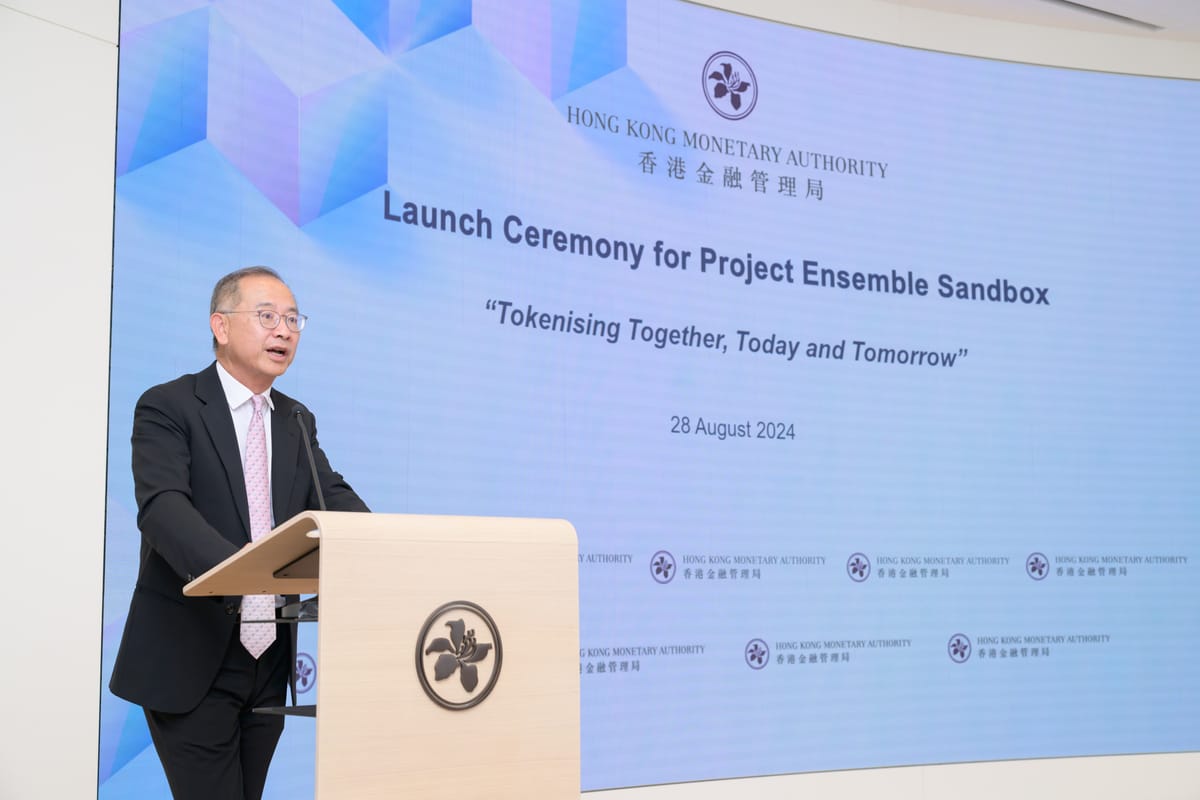Table of Contents
The Hong Kong Monetary Authority (HKMA) has commenced Phase 2 of its e-HKD Pilot Program, now rebranded as Project e-HKD+, to explore innovative use cases for digital money, including e-HKD and tokenized deposits., the regulator announced this week in a statement.
The e-HKD pilot program, launched in 2022, seeks to explore the feasibility of a central bank digital currency (CBDC) in Hong Kong. In its initial phase, the program focused on foundational research and stakeholder engagement, assessing technological capabilities and identifying potential use cases for the digital currency.
Project e-HKD+ will expand its scope beyond e-HKD alone, delving deeper into the digital money ecosystem. In this phase, 11 groups of firms from various sectors have been selected to investigate innovative applications of e-HKD and tokenized deposits across three primary themes: the settlement of tokenized assets, programmability, and offline payments. The participating firms will assess the commercial feasibility of these new forms of digital money in real-world scenarios, aiming to identify how they can be utilized by both individuals and corporations.
To facilitate this exploration, the HKMA will establish an e-HKD sandbox, allowing pilot participants to prototype and test their use cases in a controlled environment. Notably, Hang Seng Bank, Aptos Labs, and Boston Consulting Group will examine the commercial value of settling a tokenized fund using digital money on a public blockchain. Additionally, major players such as Visa, ANZ, Fidelity, and ChinaAMC will explore using e-HKD and tokenized deposits for interbank transfers and cross-border payments, aimed at streamlining purchases of tokenized fund units by corporate investors based in Australia.
Other notable participants in Phase 2 include Bank of China, HSBC, ICBC, Standard Chartered Bank, DBS, BlackRock, Mastercard, and China Mobile, reflecting broad industry interest in leveraging e-HKD to enhance financial services and facilitate cross-border transactions.
The outcome of Phase 2 is expected to provide valuable insights into the practical challenges of designing, implementing, and operating a digital money ecosystem that integrates both publicly and privately issued currencies. The HKMA said it will continue to advance the necessary technology and legal groundwork to support the potential future issuance of e-HKD for public and corporate use.
Furthermore, the HKMA plans to establish the e-HKD Industry Forum, a collaborative platform for participating institutions to discuss common challenges and explore the implementation and adoption of new digital money forms. Industry-led working groups will be formed to focus on specific topics, starting with issues related to programmability.
"The e-HKD Pilot Programme has provided a valuable opportunity for the HKMA to explore with the industry how new forms of digital money can add unique value to the general public. The HKMA will continue to adopt a use-case driven approach in its exploration of digital money," Eddie Yue, HKMA chief executive, said.
Last month, HKMA announced the launch of Project Ensemble Sandbox, a platform designed to accelerate the adoption of tokenization within the financial sector.









